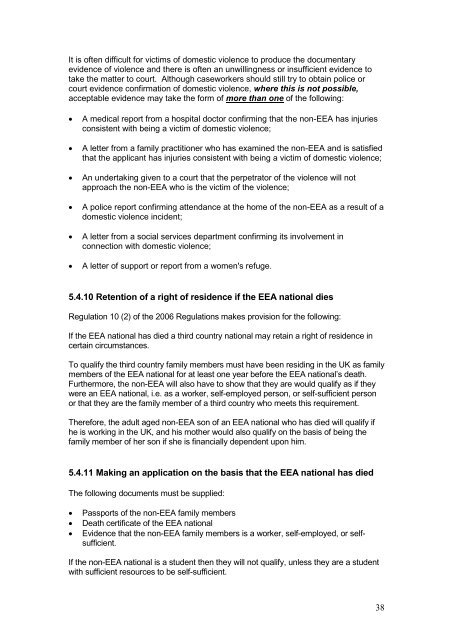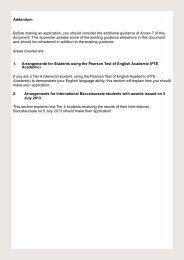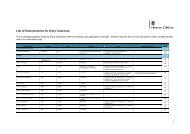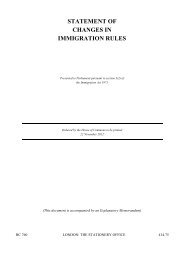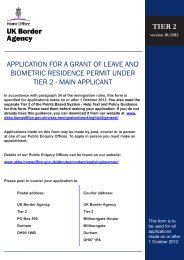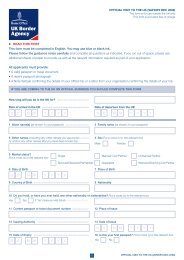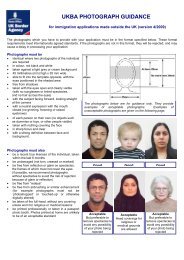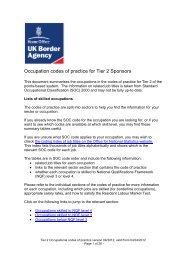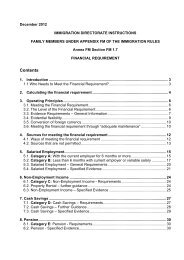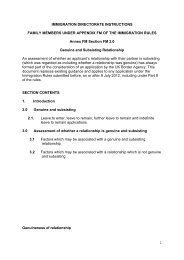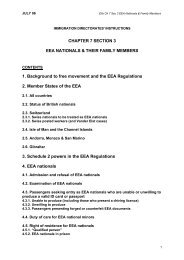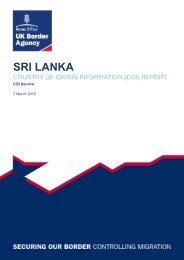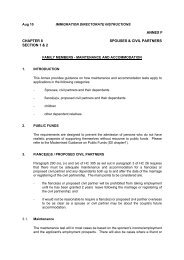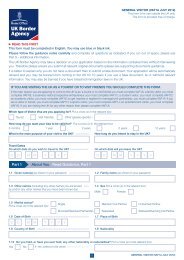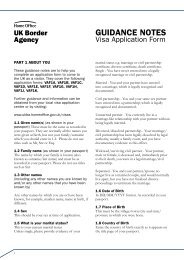Chapter 5 - Residence Card Applications - UK Border Agency ...
Chapter 5 - Residence Card Applications - UK Border Agency ...
Chapter 5 - Residence Card Applications - UK Border Agency ...
You also want an ePaper? Increase the reach of your titles
YUMPU automatically turns print PDFs into web optimized ePapers that Google loves.
It is often difficult for victims of domestic violence to produce the documentary<br />
evidence of violence and there is often an unwillingness or insufficient evidence to<br />
take the matter to court. Although caseworkers should still try to obtain police or<br />
court evidence confirmation of domestic violence, where this is not possible,<br />
acceptable evidence may take the form of more than one of the following:<br />
� A medical report from a hospital doctor confirming that the non-EEA has injuries<br />
consistent with being a victim of domestic violence;<br />
� A letter from a family practitioner who has examined the non-EEA and is satisfied<br />
that the applicant has injuries consistent with being a victim of domestic violence;<br />
� An undertaking given to a court that the perpetrator of the violence will not<br />
approach the non-EEA who is the victim of the violence;<br />
� A police report confirming attendance at the home of the non-EEA as a result of a<br />
domestic violence incident;<br />
� A letter from a social services department confirming its involvement in<br />
connection with domestic violence;<br />
� A letter of support or report from a women's refuge.<br />
5.4.10 Retention of a right of residence if the EEA national dies<br />
Regulation 10 (2) of the 2006 Regulations makes provision for the following:<br />
If the EEA national has died a third country national may retain a right of residence in<br />
certain circumstances.<br />
To qualify the third country family members must have been residing in the <strong>UK</strong> as family<br />
members of the EEA national for at least one year before the EEA national‟s death.<br />
Furthermore, the non-EEA will also have to show that they are would qualify as if they<br />
were an EEA national, i.e. as a worker, self-employed person, or self-sufficient person<br />
or that they are the family member of a third country who meets this requirement.<br />
Therefore, the adult aged non-EEA son of an EEA national who has died will qualify if<br />
he is working in the <strong>UK</strong>, and his mother would also qualify on the basis of being the<br />
family member of her son if she is financially dependent upon him.<br />
5.4.11 Making an application on the basis that the EEA national has died<br />
The following documents must be supplied:<br />
� Passports of the non-EEA family members<br />
� Death certificate of the EEA national<br />
� Evidence that the non-EEA family members is a worker, self-employed, or selfsufficient.<br />
If the non-EEA national is a student then they will not qualify, unless they are a student<br />
with sufficient resources to be self-sufficient.<br />
38


